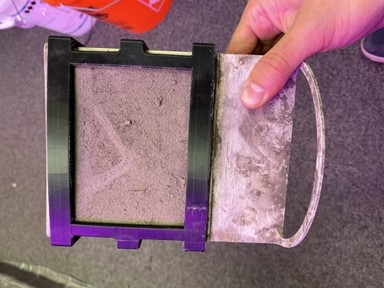PREVIOUS
Soil-Powered Fuel Cell
January 26 , 2024
698 days
860
0
- Scientists of Northwestern University in USA have developed a new fuel cell they claim can harvest energy from microbes living in the soil.
- The fuel is around the size of a book and can potentially be used to fuel underground sensors used in green infrastructure and precision agriculture.
- It could become a sustainable, renewable alternative to batteries that use toxic and flammable chemicals.
- Soil-based microbial fuel cells (MFCs) were first created in 1911 and they operate not all that differently from a battery.
- They have an anode, a cathode and electrolyte.
- But instead of using chemicals to generate electricity, they harvest electricity from bacteria that naturally give out electrons to nearby conductors.
- These electrons from anode to cathode to create an electric circuit.

Leave a Reply
Your Comment is awaiting moderation.


